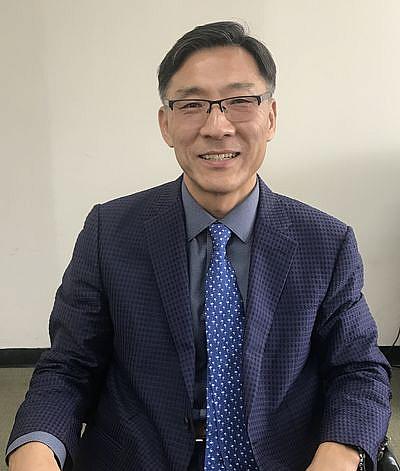The Korean Community Struggles with Depression
The story was co-published with Korea Daily as part of the 2024 Ethnic Media Collaborative, Healing California.

Photo by Stormseeker on Unsplash
Mental health professionals diagnose depression as a “cold of the heart” that anyone can experience. Just as a healthy body needs rest when it becomes sick, the mind also needs time to heal when mental stress increases and hormones fluctuate.
However, if left untreated, depression and anxiety disorders can lead to suicide.
According to the L.A. County Coroner’s Office, 10 Koreans took their own lives between 2016 and 2023 due to depression.
Korea Daily's online survey of its readers found that 9 out of 10 of self-selected respondents said they experience depression
To understand the mental health awareness of the Korean community, The Korea Daily posted the “Korean Community Mental Health Survey – What do you do when you are depressed?” on our website (koreadaily.com) from February 1 to 12. A total of 235 self-selected Korean-speaking individuals (52% male, 48% female) from California and other states shared their responses in the survey.
While the survey was not conducted using scientific protocols, responses offer an indication of how Korean respondents feel about their mental health. Nine out of 10 respondents felt depression or depressive symptoms from one to three times in the past year. In particular, 59% of the respondents said they felt depressed 3 or more times, 10% felt depressed 2 or more times, and 22% felt depressed 1 or more times. Only 1 out of 10 respondents said they did not experience feelings of depression or depression.
When asked about the causes of their depression (multiple responses allowed), 56% of 226 respondents cited a loss of life’s purpose, including a sense of emptiness. Financial problems were mentioned by 39%, immigrant isolation and loneliness by 36%, relationship problems by 24%, and family disputes by 21%. Other reasons included long-distance relationships, workplace harassment, bereavement, health deterioration, and moving.
While the survey participants are not representative of all Koreans, and we cannot compare these survey results to the general population, nevertheless the results provide insight into the mental health struggles faced by many in the Korean community.
The Centers for Disease Control and Prevention (CDC) report that the prevalence of depression among all Americans is 18.5 percent. KHEIR Clinic noted that “financial hardships, job difficulties, spousal and child conflicts, and relationship stress” are major causes for those diagnosed with depressive and anxiety disorders.
The medical criteria for depression includes feelings of sadness and a desire to cry, diminished interest in activities, changes in weight and appetite, excessive sleep or insomnia, severe anxiety and lethargy, loss of interest and energy in life, low self-esteem and frequent guilt, impaired thinking and concentration, and thoughts of death or suicide. If five or more of these symptoms persist for over two weeks, depression may be suspected.
On the severity of their depression, close to two-thirds of the 227 respondents felt their life was meaningless (30%), had suicidal thoughts (21%), and felt persistently sad and tired (14%). A psychiatrist suggested a high likelihood of severe depression among them.
Fortunately, 61% of 223 respondents experienced depression for less than a week, which is medically considered a normal fluctuation of mood.
However, 41% felt depressed for more than two weeks, and 24% experienced symptoms for over three weeks.
Dr. Justin Choe, a former president of the Korean American Psychological Association, noted that “Koreans often express feeling depressed, encompassing various psychological difficulties such as helplessness, anxiety, difficulties in interpersonal relationships, and stress.”
Dr. Choe emphasized that individuals expressing extreme mental distress may have chronic depression and should seek professional help.
Professional counseling and prescribed treatment are important
For preventing and managing depression, individuals are advised to undertake regular physical exercise, monitor their emotional state, maintain a daily schedule, meditate, ensure sufficient sleep, consume a nutritious diet, develop an emotional support network, engage in social activities like traveling, hobbies, or volunteering, and manage their social networks using media.
Mental health professionals especially recommend consulting a psychological counselor or specialist if feelings of depression persist for more than two weeks.
KHEIR Clinic warned against applying inaccurate information or treatment experiences from the internet, media, or others to oneself. It is crucial to understand one’s condition and symptoms and receive an accurate diagnosis through professional consultation.
The survey also highlighted the need for increased education and awareness about depression within the Korean community.
However, 31% of 224 respondents do not view depression as a disease. Many are unaware of treatment options (19%), reluctant to seek therapy (27%), or feel embarrassed (6%).
Indeed, 70% of respondents prefer to wait for improvement when feeling depressed. Only 18% discuss their feelings with friends or family, 7% use prescription medication, and 5% consult professionals.
When asked about overcoming depression (multiple responses allowed), 47% of 229 respondents believed in self-reliance. Friends and family support was chosen by 38%, professional counseling by 29%, and medication by 9%.
Dr. Jasung Kim, a psychiatrist, remarked, “Counseling and therapy are now recognized as beneficial for overcoming panic disorders and depression. The effectiveness of counseling increases with psychological maturity. If struggling with depression, seeking counseling is highly recommended.”
Dr. Choe added that individuals who tackle chronic symptoms or significant psychological shocks alone might later experience severe depression or other mental issues upon encountering a trigger. “Untreated mental symptoms, like untreated broken bones, can lead to severe aftereffects. Proper treatment is essential,” he advised.
Shortage of counselors and cost is a challenge
The recent surge in demand for mental health counseling and treatment has resulted in a shortage of Korean counselors, insufficient free counseling services from government agencies or organizations, and the burden of costs, including health insurance.
An anonymous official from a Korean nonprofit organization stated that free mental health counseling is only available to those with Medi-Cal or low-income individuals. Free services offered by government agencies or organizations have limitations in providing sustained and professional treatment.
Dr. Choe acknowledged the over-saturation of counseling centers and the increasing difficulty in securing appointments. Nevertheless, he encouraged active treatment, such as professional psychological counseling, to prevent significant aftereffects.
Psychiatrist Jasung Kim explains ways to overcome depression

Dr. Jasung Kim, a psychiatrist based in LA Koreatown, who advises counseling and treatment for depression.
Hyoungjae Kim, The Korea Daily
Depression can affect anyone. It does not discriminate between rich and poor, gender, or age. It is not something to be ashamed of or a weakness to hide in a modern society where stress is prevalent. Those who have overcome depression say that “the mind can be healed,” and they urge us not to remain in denial.
The Korea Daily asked the expert how to overcome depression. “If you feel that life is meaningless, you feel sad all the time, and you have thoughts of dying for more than two weeks, then you are experiencing severe depression. The key is to combine professional counseling and medication,” explains Dr. Jasung Kim, a psychiatrist based in LA Koreatown.
He highly recommends counseling and treatment for depression, noting that when it persists, basic physiological functions like sleep and eating are affected, leading to irrational judgment and an increased risk of extreme behavior.
According to Dr. Kim, an initial depression consultation involves a comprehensive assessment of the patient’s significant life events. Then, like a good coach, the psychiatrist develops a behavioral therapy plan to help the patient find solutions and instill hope. “At this point, the light of hope is turned on for the patient,” said Dr. Kim.
He emphasized that patients with severe depression need a combination of medication and counseling to improve their physiological symptoms. “Firstly, the physiological symptoms need to improve quickly to make psychological treatment possible,” stated Dr. Kim. “With medication, you start sleeping better, your
appetite returns, and you feel energized. This reduces anxiety and provides the mental energy needed to cope with stress,” he explained.
After the initial consultation, patients are prescribed medication for about two weeks to improve their physiological state, including insomnia and loss of appetite. Subsequently, patients receive lifestyle advice to aid in overcoming depression.
“Once the physiological condition improves, patients can reassess major stressors in their lives,” Dr. Kim noted. He recommends monthly counseling sessions to help patients find hope. Treatment for depression can last four to six months for first-time patients and six to eight months for those with recurring depression. Recurrent patients may need to continue medication longer, depending on whether they are exercising, quitting alcohol and tobacco, overcoming substance abuse, and rebuilding social relationships.
“The earlier cancer is detected and treated, the better the chances of recovery,” Dr. Kim points out. Similarly, it’s crucial to start treating depression early.
This Korea Daily project is supported by the USC Annenberg Center for Health Journalism, and is part of “Healing California,” a yearlong Ethnic Media Collaborative reporting venture with print, online and broadcast outlets across California.
